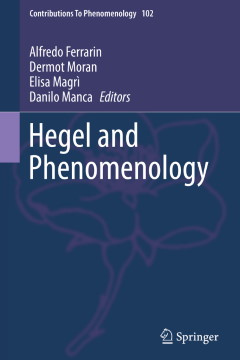Adorno on the meaning of phenomenology
pp. 147-162
Abstract
In this paper I reconstruct Adorno's arguments against the phenomenological project as developed by Husserl in the early phase of his thought, with particular focus on the dialectical nature and meaning of such a critique. Primary references are Adorno's article Husserl and the Problem of Idealism, published in 1940, and his book Against Epistemology: A Metacritique, published in 1956. I argue that, for Adorno, Husserl's attempt must be understood as both logically impossible and theoretically productive. After laying down the general framework of Adorno's reading in the first three sections, I examine his criticism of Husserl's "involuntary dialectic" in detail, also with the help of an independent analysis of some ambiguities in Husserl's concept of "categorial intuition". In the last section, I explain why and under what conditions, according to Adorno, the original impulse of Husserlian phenomenology toward an intact knowledge of "things themselves' needs to be maintained in spite of all.
Publication details
Published in:
Ferrarin Alfredo, Moran Dermot, Magrì Elisa, Manca Danilo (2019) Hegel and phenomenology. Dordrecht, Springer.
Pages: 147-162
DOI: 10.1007/978-3-030-17546-7_9
Full citation:
Zanotti Giovanni (2019) „Adorno on the meaning of phenomenology“, In: A. Ferrarin, D. Moran, E. Magrì & D. Manca (eds.), Hegel and phenomenology, Dordrecht, Springer, 147–162.


